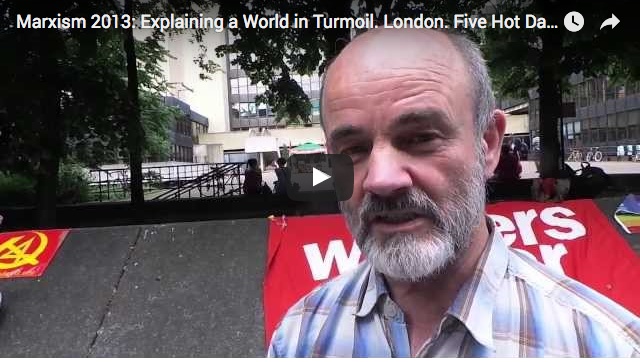Use the May 2014 Euro elections to fight for socialism and internationalism, argues James Marshall of Labour Party Marxists
Opposition to the European Union continues to embarrass, vex and divide rightwing bourgeois politicians.
The current situation is easy to summarise. Under severe pressure from the UK Independence Party, David Cameron has committed the Tories to an in-out referendum following the next general election in 2015. If returned to No10 he solemnly pledges to negotiate a root-and-branch reform of Britain’s relationship with Brussels. Smelling blood, Nigel Farage wants to turn the May 2014 European election into a referendum against Bulgarian and Romanian migrants and continued EU membership. And, worryingly, an Open Europe poll puts Ukip on 27% – significantly ahead of Labour (23%) and the Tories (21%).1 Meanwhile, the swelling anti-EU mood gives rise to further rifts within Conservative ranks. Eg, Adam Afriyie – tipped by some as a future Tory leader – has been agitating for a referendum this side of the general election.2
Disgracefully, not a few in the labour movement have aligned themselves with the xenophobic right. Among the Labour MPs who signed up to the People’s Pledge – a cross-party (now semi-defunct) campaign calling for an EU referendum – are Ronnie Campbell, Rosie Cooper, David Crausby, Jon Cruddas, John Cryer, Natascha Engel, Jim Fitzpatrick, Roger Godsiff, Tom Harris, Kate Hoey, Lindsay Hoyle, Kelvin Hopkins, George Howarth, Iain McKenzie, Austin Mitchell, Graham Stringer, Gerry Sutcliffe, Derek Twigg and Keith Vaz. The RMT was the first union to give official backing. Brian Denny of the Morning Star’s Communist Party of Britain sits on its national council, as does Mark Seddon, former editor of Tribune. Other council members include Tory MPs Zac Goldsmith and Douglas Carswell, Nigel Dodds (Democratic Unionist Party deputy leader), Marta Andreasen (Ukip MEP till February 2013, when she defected to the Tories), Jenny Jones (Green Party) and Jim Sillars (SNP deputy leader 1990-92). Bob Crow, Boris Johnson, Caroline Lucas and Bill Greenshields (CPB chair) are prominently listed as supporters.
The foul nature of the People’s Pledge can be gathered from the protest it staged outside the treasury on July 21 2011. That was the day when EU leaders launched a second, £96 billion, bailout for Greece. The campaign said that there should be no further contributions from Britain. Bob Crow in particular singled out article 122 of the Lisbon treaty, which “obliges” British taxpayers to “risk” billions of pounds at a “time of cuts to public services at home”.3 Presumably Greece should be abandoned to a disorderly default and forced to exit from the euro zone.
For its part, the British National Party roundly condemns international bankers for “strangling the Greek economy”, demands that the UK “withdraw from the European Union” and wants to reserve government funds for “more useful projects”.4 Sadly, a position which almost passes for common sense on the left nowadays too. Both the Socialist Workers Party and the Socialist Party in England and Wales are set to partner the Morning Star’s CPB in the No2EU electoral front – note the line-up of speakers for the North West constituency launch meeting: Bob Crow (RMT), Roger Banister (SPEW) and Michael Lavalette (SWP).5 According to a recent No2EU bulletin, a break with the EU will allow Britain to “be rebuilt with socialist policies.”6 A clear case of national socialism. And, unfortunately, where the CPB, SWP and SPEW have led Socialist Resistance, Respect, Alliance for Green Socialism, Socialist Labour Party, Solidarity, etc have followed.
What appears to be an incongruous, puzzling and unnatural alignment between left and right in actual fact stems from a common source. Uniting 28 countries, having an agreed legal framework, committed to the free movement of labour and capital, the EU stands as an existential threat to the nation-state cherished by those for whom the future lies in the past. After all BNPers yearn for a white, 1950s Britain with traditional weights and measures and close trading relations with Canada, Australia and New Zealand. In a similar way, the nation-state is viewed as the natural vehicle for socialist transformation by left reformists, ‘official communists’ and former Trotskyites alike. The dream is of a referendum which in due course will see a return to Keynesianism, welfarism and “British sovereignty”.
As an aside, it is worth noting the deep distrust Marxists have generally had for referendums. So-called ‘direct democracy’ is a chimera in any complex society. Nuances have to be considered, likely consequences predicted and alternatives closely studied. That is why we advocate indirect democracy: ie, the election of recallable representatives who are tasked with debating and deciding political positions and stratagems. Marx certainly denounced – and in no uncertain terms – Louis Bonaparte’s deployment of successive referendums to consolidate his dictatorship and excuse foreign adventures.7 The wording of the question is, of course, everything. Eg, to vote ‘no’ was to declare oneself opposed to democratic reforms, to vote ‘yes’ was to vote for despotism and war. Referendums bypass representative democracy, political parties and careful deliberation. Something not lost on Adolph Hitler. He managed to get a 90% mandate for his dictatorship on August 19 1934 – despite an almost unprecedented campaign of intimidation, there were millions of spoilt ballot papers.
Standing out
Against this dire background the position of the Labour Representation Committee stands out positively. The November 2011 AGM was presented with resolution 15, which reads as follows:
1. That the Europe-wide capitalist crisis requires a Europe-wide working-class response.
2. That we should no more oppose European capitalist integration than we would oppose the merger of two companies, even though the bosses use mergers as an excuse to attempt job cuts and other attacks. When Britain PLC merges into Europe PLC, the answer is to link up with other European workers in solidarity and struggle.
3. That demanding withdrawal from the EU, or opposing British entry into the European single currency, is a British nationalist position which misidentifies the enemy as ‘Europe’ rather than the ruling class. This is not altered by tacking on a slogan like ‘Socialist United States of Europe’.
4. The road to a socialist united Europe is the road of responding to European capitalist unification by organising for cross-European workers’ and socialist struggle. We advocate the following programme for this struggle:
Oppose all cuts; level up wages, services, pensions and workers’ rights to the best across Europe;
Tax the rich and expropriate the banks, Europe-wide;
Scrap the EU’s bureaucratic structures; for a European constituent assembly;
Against a European defence force; for a Europe without standing armies or nuclear weapons;
For a European workers’ government.
5. In a referendum on British entry to the euro, our position will be to advocate an active abstention and our slogans will be along the lines of ‘In or out, the fight goes on’; ‘Single currency – not at our expense’; and ‘For a workers’ Europe’.
The resolution concludes with a three-point commitment:
1. To organise public meetings and debates about Europe across the country.
2. To initiate a short statement setting out this position and circulate it around Britain and Europe for signatories.
3. To produce a short pamphlet setting out this position.8
Given that the resolution originated with and was moved by the social-imperialist Alliance for Workers’ Liberty, it was perhaps surprising that the AGM voted in favour. But, thankfully, it did. True there are some problems with it. Eg, a European workers’ government is perfectly fine as a programmatic position, but is a sad joke when it comes to immediate agitation. At present there is no serious revolutionary Marxist party anywhere in Europe. Nevertheless, the resolution was eminently supportable and it was good to see it gain a clear majority.
That said LRC leaders such as Graham Bash, Andrew Fisher and Mike Phipps evidently thoroughly disapproved of the resolution … and, as far as I am aware, the concluding three-point commitment remains unfulfilled. Of course, this may well be due to the decline and disorganisation of the LRC over the last couple of years.
Next May
However, the AWL has presented this year’s LRC national conference with another resolution on Europe. Noting the 2011 policy, the growth of Ukip and the rerun of No2EU, the AWL’s resolution 13 once again condemns British nationalism and xenophobic calls for an EU withdrawal. The position on organising an “all-European working class and socialist struggle”, etc is also reiterated. Nevertheless, the conclusion is questionable. The AWL calls for a “campaign advocating a Labour vote” in the May 2014 EU elections on the basis of opposing cuts, supporting the levelling up of wages across Europe, striving for the pan-European organisation of the working class, scrapping the EU’s bureaucratic structures, etc. Slogans such as ‘For international working class solidarity – for a workers’ united Europe’ are recommended in that spirit.
Frankly, the conclusion does not follow from the premise. Ed Miliband and his candidates for 2014 will hardly be standing on the principles of internationalism and the perspective of a European workers’ government. Nor will they oppose all cuts or advocate a European constituent assembly. No, Labour candidates will be standing on a version of British nationalism barely distinguishable from that of the Tories and the Lib Dems. In the pointed words of deputy leader Harriet Harman, the “top priority” of Labour MEPs will be to “make sure they get the best deal” and “bring jobs and growth here in the UK”.9
That does not rule out voting Labour. Indeed, it has to be admitted, most LRC affiliates and individual members are firmly within the auto-Labour fold. But surely it would be far better for the LRC to use the May elections as an opportunity to make propaganda for its vision of a Europe ruled by the working class. Instead of running a campaign “advocating a Labour vote”, the LRC should challenge British nationalism across the board and spread the message of pan-EU working class unity, democracy and socialism. An election dominated by Ukip and British nationalism needs the input of the LRC and other leftwing organisations.
Notes
1. Daily Mail May 28.
2. The Daily Telegraph October 12.
3. http://communist-party.org.uk/index.php?option=com_content&view=article&id=1377:article-9-demonstration-no-bail-out-without-a-referendum&catid=78:eu-a-popular-sovereignty&Itemid=91.
4. www.bnp.org.uk/policies/foreign-affairs.
5. www.socialistparty.org.uk/campaign/Election_campaigns/no2eu/17420.
6. www.tuaeuc.org/no2eu-wp/wp-content/uploads/2013/09/a5_no2eu.pdf.
7. See Marx’s The 18th Brumaire of Louis Bonaparte (1852) and The civil war in France (1871). Also there is Kautsky’s book, Parliamentarism, direct legislation and social democracy (1893).
8. Resolutions booklet November 2011, p11.
9. www.labour.org.uk/labour-party-european-election-candidate-selection-results,2013-08-02.






